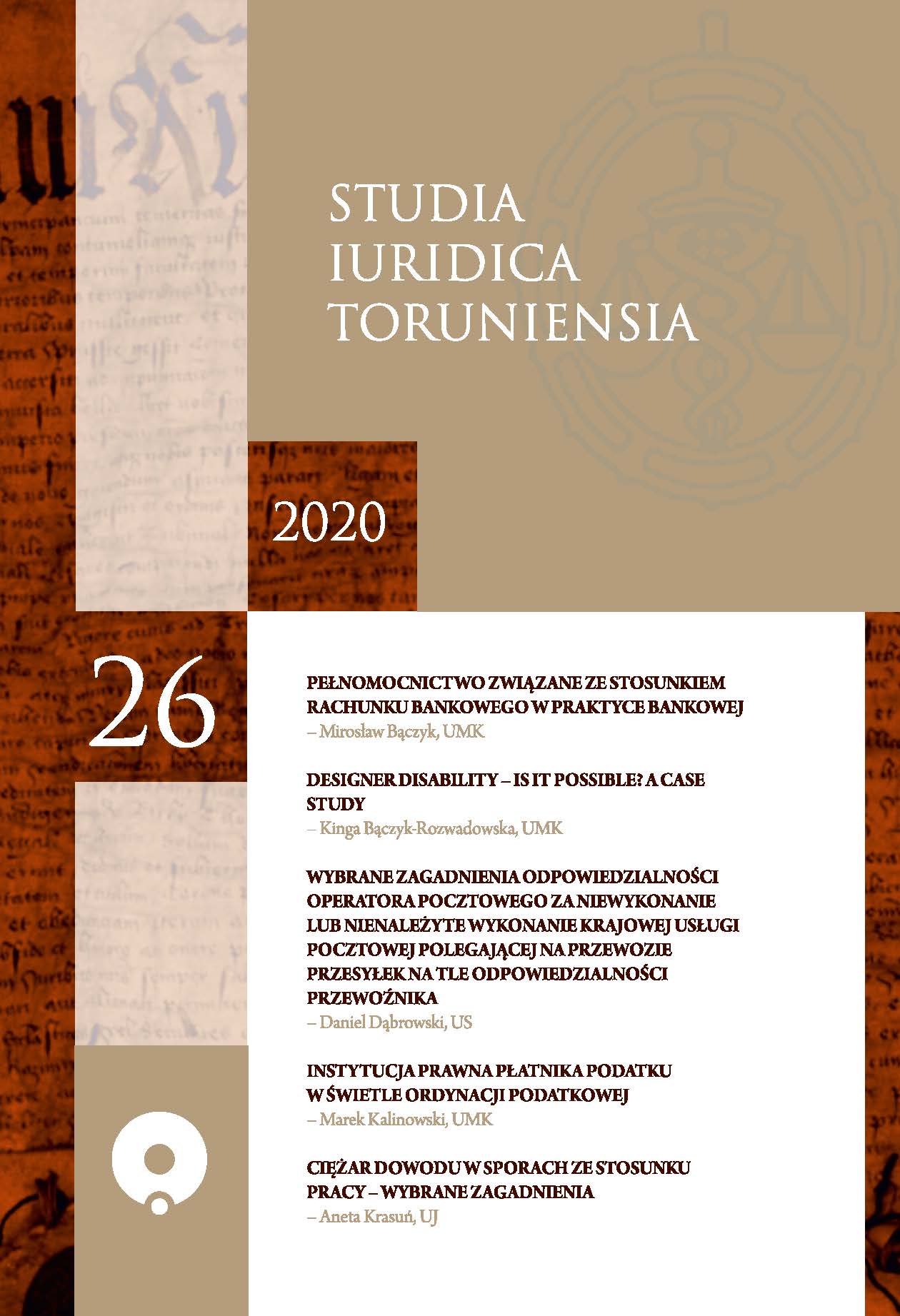Designer disability – is it possible? A case study
DOI:
https://doi.org/10.12775/SIT.2020.002Keywords
medically assisted procreation, in vitro fertilization, parental project, designer baby, disability, embryo screening, congenital disease, embryo transfer, preimplantation genetic diagnosis, sex selection, welfare of the childAbstract
Preimplantation genetic diagnosis (PGD) precedes the performance of assisted reproductive technologies when a couple is affected by a serious hereditary (genetic) disease and it is necessary to screen out embryos that carry certain abnormalities. However, the procedure may be applied in an unauthorized manner if parents-to-be intentionally create a child with the same particular defect (deafness, blindness, dwarfism, etc.) they suffer themselves. This practice is even more controversial than the concept of designer baby, consisting of the choice of sex and the phenotypical virtues of the future offspring. Procreative autonomy, including free and unconstrained decision to conceive and give birth to a child, doesn’t seemto justify such activities.
References
Baudouin J., Labrusse-Riou C., Produire de l’homme. De quel droit? Étude juridique et éthique des procréations artificielles, Paris 1987.
Bączyk-Rozwadowska K., Aktualne problemy diagnostyki preimplantacyjnej w kontekście dążeń rodziców do realizacji projektu rodzicielskiego, „Białostockie Studia Prawnicze” 2017, nr 2.
Bączyk-Rozwadowska K., Prawo pacjenta do informacji w świetle uregulowań polskiego prawa medycznego, „Studia Iuridica Toruniensia” 2012, nr 1.
Bączyk-Rozwadowska K., Prokreacja medycznie wspomagana. Studium z dziedziny prawa, Toruń 2018.
Brazier M., Cave A., Medicine, Patients and the Law, wyd. V, London 2011.
Deech R., Playing God: Who Should Regulate Embryo Research?, „Brooklyn Journal of International Law” 2006–2007, No. 2, Vol. 32.
Grabinski A., Haberko J., Dobro dziecka a stosowanie procedur wspomaganej medycznie prokreacji w prawie francuskim i prawie polskim, „Studia Prawnicze” 2011, z. 1.
Herring J., Medical Law and Ethics, wyd. IV, Oxford 2012. Jackson E., Medical Law. Text, Cases, Materials, Oxford 2006.
Krajewski P., Eugeniczna selekcja embrionów, w: Współczesne wyzwania bioetyczne, red. L. Bosek, M. Królikowski, Warszawa 2010.
Kapelańska-Pręgowska J., Preimplantacyjna diagnoza molekularna w międzynarodowych standardach wiążących i zalecanych, „Prawo i Medycyna” 2009, nr 2.
King D., Preimplantation Genetic Diagnosis and the “New” Eugenics, „Journal of Medical Ethics” 1999, Vol. 25.
Lipski J., Opinia prawna na temat projektu ustawy o zmianie ustawy o pobieraniu, przechowywaniu i przeszczepianiu komórek, tkanek i narządów, „Zeszyty Prawnicze Biura Analiz Sejmowych” 2011, nr 4, vol. 32.
Luckey C., Commercial Surrogacy: Is Regulation Necessary to Manage the Industry?, „Wisconsin Journal of Law, Gender and Society” 2011, No. 2, Vol. 26.
Nawrot O., Diagnostyka preimplantacyjna w prawodawstwie Rady Europy, „Zeszyty Prawnicze Biura Analiz Sejmowych” 2009, nr 2.
Nesterowicz M., Prawo medyczne, wyd. XII, Toruń 2019.
Oniszkis B., Wolność prokreacyjna – zarys problematyki, „Prawo i Medycyna” 2013, nr 1–2.
Scott R., Williams C., Ehrich K., Farside B., The Appropriate Extent of Pre- Implantation Genetic Diagnosis: Health Professionals’ and Scientists’ View on the Requirement for a Significant Risk of a Serious Genetic Condition, „Medical Law Review” 2007, Vol. 15.
Spriggs M., Lesbian Couple Create a Child Who is Deaf Like Them, „Journal of Medical Ethics” 2002, Vol. 28.
Downloads
Published
How to Cite
Issue
Section
Stats
Number of views and downloads: 814
Number of citations: 0



